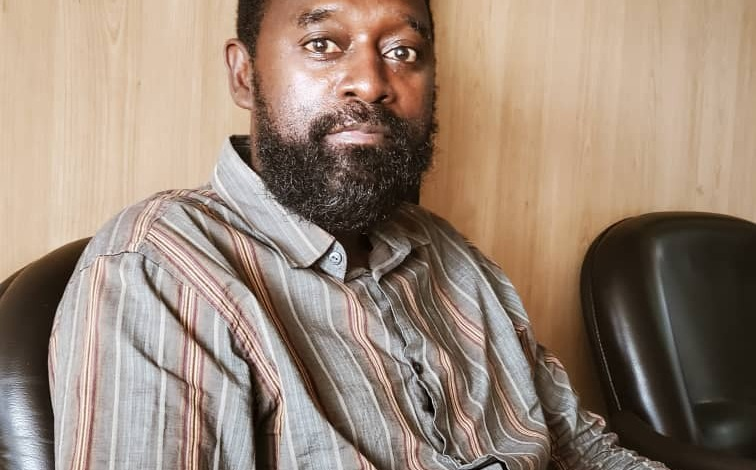Gaddafi was not betrayed by Africa but himself

Opinions
By Magezi Kiriinjju
“Money cannot buy you friends, but it can get you a better class of enemies.”
Ever since Libyan President Muammar Muhammad Abu Minyar al-Gaddafi was overthrown and killed by a NATO led coalition of local rebels in 2011, there has been accusations and counter arguments that Africa betrayed him.
Personally, I believe Africa did all she could to save Libya and his life but unfortunately, Gaddafi’s reality was totally warped, hence, he did not listen to anyone.
To me, Gaddafi betrayed himself over a period spanning 30 years in which he set the stage for what finally happened to him.
His brutal censorship policies at home that angered Libyans, antagonistic foreign policies that pitied him against the West, laisser-faire alliances that never endeared him to neither Russia nor China and use of Libyan oil money for influence peddling in Africa that did not earn him many friends but a lot of better classes of African enemies.
By the time ‘The Arab Spring’ started in Tunisia and spread throughout the Arab world including Libya, President Muammar Gaddafi did not have enough citizens to defend him, they instead were ready to get rid of him.
He had also accumulated enough enemies in the West who were willing to support any rebellion against him, yet he had no strategic powerful friends to defend him and Africa was both weak and non-committal to stand against his powerful enemies.
But how did Gaddafi arrive at such a fatally compromising moment? He committed five strategic blunders by commission and omission as i argue here;
Gaddafi becomes King; On 1 September 1969, he became the de facto leader of Libya after overthrowing King Idris I in a bloodless coup d’état and declared Libya a Republic. He promised Libyans “unity, freedom and social justice”.
He may have delivered well on ‘Social Justice”, but he performed poorly on ‘Freedom’. He developed Libya into a modern country with almost no debts, but also instituted the strictest censorship regime in the world.
Libyans were not allowed to criticise him or his government, they were afraid of each other and lived in fear of government.
To make matters worse, his 40-year rule mirrored that of a King, and by 2011, he had declared himself “King of Kings”. Alienating himself from the citizens became mistake number one.
Arab nationalism; After taking power, Gaddafi became the leading voice for a United Pan-Arabism, proposing the creation of a single Arab nation.
He first floated the merging of Libya, Egypt and Syria into one country called “Federation of Arab Republics” but it failed due to some disagreements between himself and Egyptian president Anwar Sadat. When Egypt signed a peace treaty with Israel, the whole concept went up in flames completely.
He floated a merger with Tunisia to form the “Arab Islamic Republic.” but that too did not materialise. All these failed Arab uniting attempts left Gaddafi bruised and looking bad among his Arab peers due to his grandiose revolutionary ideas and authoritarian tendencies. Pissing off fellow Arabs became his mistake number two.
International pariah status; After taking power, and in what he called the “Day of Revenge” Gaddafi expelled all Italians who had stayed back in Libya after the end of their colonisation from 1911 to 1943 when they lost Libya to the Allied Forces during World War 2.
He followed that by expelling Israelis and banishing Jewish Libyans and seizing all their properties. Those Libyan Jews that had travelled abroad were informed never to come back to Libya.
Gaddafi went on to become notorious for his outlandish menacing rhetoric against western leaders; he threatened to assassinate US president Ronald Reagan, he praised the terrorist outfit ‘Red Army Faction’ that operated in German and was accused of numerous bombings, assassinations, and kidnappings.
Towards 1980s, Gaddafi turned Libyan embassies into terrorism recruitment centres, renaming them “People’s Bureaus” and changed embassy staff into “revolutionary committees”.
These Peoples’s Bureaus were suspected of facilitating travel arrangements, issuing forged documents, and providing funds to militant groups globally.
On December 21 1988, a Pan Am flight 103 was bombed mid-air over Lockerbie, Scotland leaving 259 passengers and 11 people on ground dead.
While Gaddafi did not accept responsibility, his government compensated victims’ families with USD 10m per family.
Created suspicion that he was aware of the operation to bring down the plane, and others interpreted it as revenge for America’s attack on Libya two years earlier in 1986. Mistake three that soured his relationship with the West was stamped.
Gaddafi no fan of communism; Because he considered himself a devout Muslim, Gaddafi never warmed up to communism since he considered it synonymous with atheism.
He did not cozy up to USSR and also because he perceived Russia’s support for secular regimes like in Iraq as a threat to his version of Islamic ideology, he steered cleared of Communist East.
While he hated Western Capitalism, he too did not approve of Eastern Communism, hence, slumbered into mistake number four.
Pan-Africanist too late; After failing to rally fellow Arabs to form unified countries, Gaddafi become an avid crusader for Pan-Africanism in which he advocated for a United States of Africa.
He became so engrossed with the idea that he paid bills for whatever initiative that would drive the concept to fruition.
While his new found love for Africa was great, his peers did like his overbearing influence and use of money to get things done in his favour.
His open insistence to be the first president if Africa United caused some uneasiness among his Sub-Saharan African peers.
Historically, Arabs have always despised their black African brothers including fellow black Muslims. This history meant black presidents did not trust Gaddafi fully, they were hesitant to support his radical ideas wholeheartedly.
As he splashed cash to buy African friends, he ended up getting himself a better class of enemies on the continent. His mistake number five completed the cycle of blunders that would take his government and life.
Of all mistakes President Gaddafi made, number one and four were the most fatal.
Judging by what happened in Syria, if he had support of majority Libyans and the protection of communist Russia, his government and life would have survived the ‘Arab Spring’ and the onslaught of NATO. Unfortunately, he did not have either.
The writer is a Communications Officer at the Government Citizen
Interaction Centre (GCIC)
Member of Campfire Ideological Study Group.




